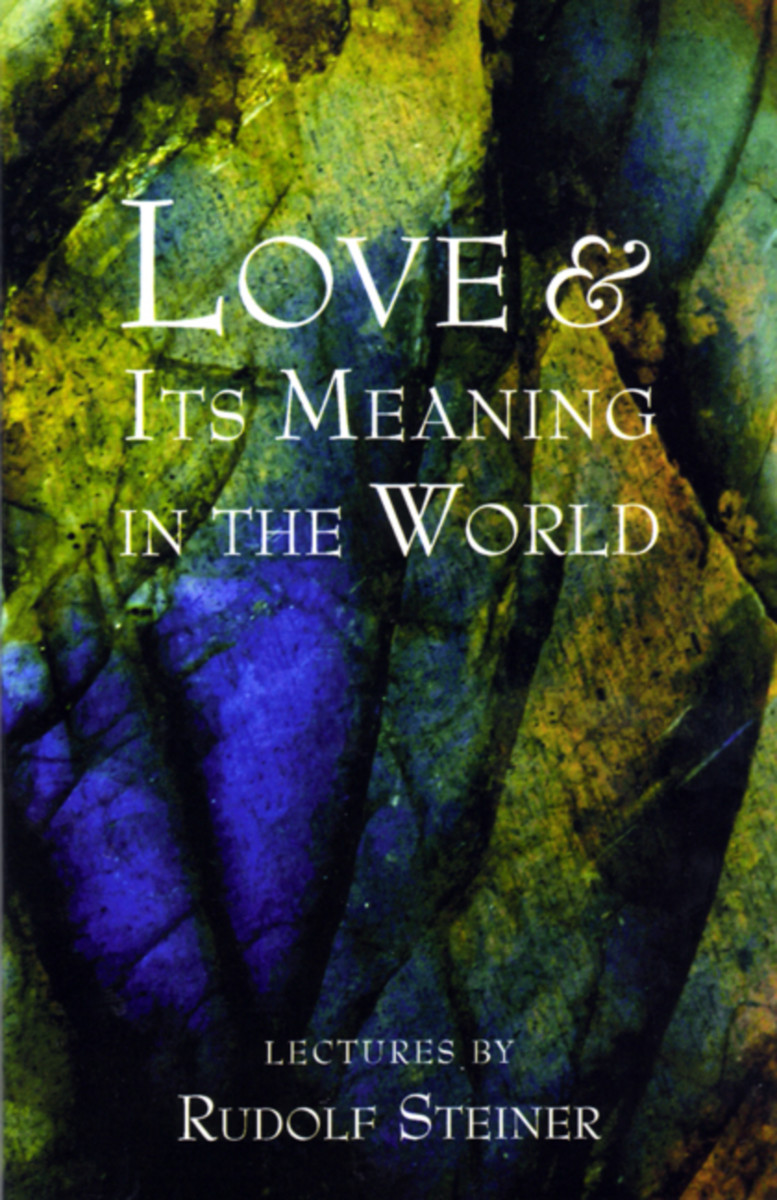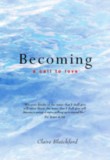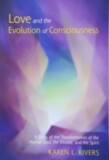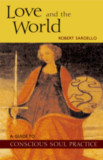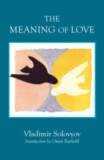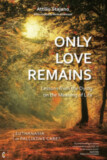Love and Its Meaning in the World
- Publisher
SteinerBooks - Published
1st November 1998 - ISBN 9780880104418
- Language English
- Pages 208 pp.
Selected lectures and writings
“For human beings, love is the most important fruit of experience in the sense world. Once we really understand the nature of love, or compassion, we will find that love is the way spirit expresses its truth in the world of the senses.... We may even say that, in love, the spiritual world awakes in the physical. The more truly a soul inhabits the spiritual worlds, the more it experiences lovelessness and lack of compassion as a denial of spirit itself.” — Rudolf Steiner (Aphorism 9, The Threshold of the Spiritual World)
Although Steiner did not often speak or write about love explicitly, love is at the very heart of his whole body of work and the foundation of his hopes for humankind and the Earth. Steiner teaches that, without love, nothing is possible; with love, however, we can do everything. Love is always "love of the not-yet." To love is to create; it is to selflessly enter the current of time that flows toward us from the future.
Reality, true knowledge of reality, is impossible without love. Only through love can we truly know as we are now and encounter the world and its beings in a living way. Without love, knowledge becomes manipulation, domination, control; the world becomes a space of dead things. But, when we know through love, we enter into a pattern of dynamic, potentially redemptive relations and the world becomes a living world of beings working for the good.
This collection gathers all of Rudolf Steiner’s main lectures and writings related to love. From earthly love to the nature and function of spiritual love, these pieces are essential reading for anyone concerned with the future of humanity and the Earth.
Love and Its Meaning in the World is essential reading for anyone who'd like to gain a deeper understanding of our true mission as human beings and the purpose of evolution on Earth.
C O N T E N T S:
Introduction by Christopher Bamford
Prologue: The Mystery of Love
1. The Division of the Sexes
2. Lucifer and Christ
3. The Mission of Reverence
4. Love: The Mission of the Earth—1
5. Love: The Mission of the Earth—2
6. Love: The Mission of the Earth—3
7. The Buddha's Teaching of Compassion and Love
8. Faith, Love, and Hope —1
9. Faith, Love, and Hope —2: Freedom and Love
10. Love and Its Meaning in the World
Epilogue: “I”-Feeling, the Soul's Capacity to Love, and Their Relationship to the Elemental World
Three Prayers for the Dead
Further Reading
Rudolf Steiner
Rudolf Steiner (b. Rudolf Joseph Lorenz Steiner, 1861–1925) was born in the small village of Kraljevec, Austro-Hungarian Empire (now in Croatia), where he grew up. As a young man, he lived in Weimar and Berlin, where he became a well-published scientific, literary, and philosophical scholar, known especially for his work with Goethe’s scientific writings. At the beginning of the twentieth century, he began to develop his early philosophical principles into an approach to systematic research into psychological and spiritual phenomena. Formally beginning his spiritual teaching career under the auspices of the Theosophical Society, Steiner came to use the term Anthroposophy (and spiritual science) for his philosophy, spiritual research, and findings. The influence of Steiner’s multifaceted genius has led to innovative and holistic approaches in medicine, various therapies, philosophy, religious renewal, Waldorf education, education for special needs, threefold economics, biodynamic agriculture, Goethean science, architecture, and the arts of drama, speech, and eurythmy. In 1924, Rudolf Steiner founded the General Anthroposophical Society, which today has branches throughout the world. He died in Dornach, Switzerland.


